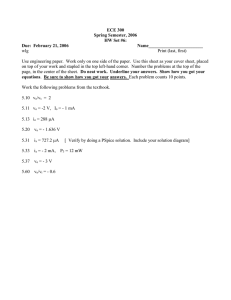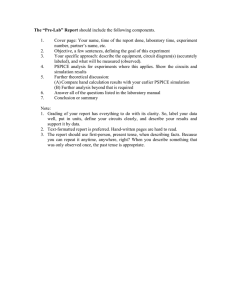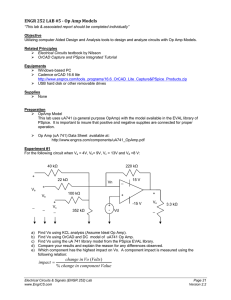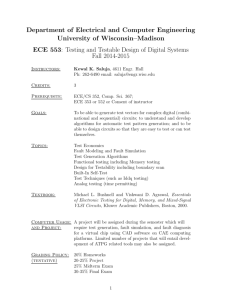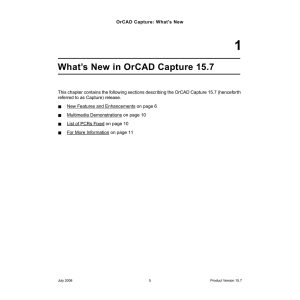Lab 1 CA
advertisement
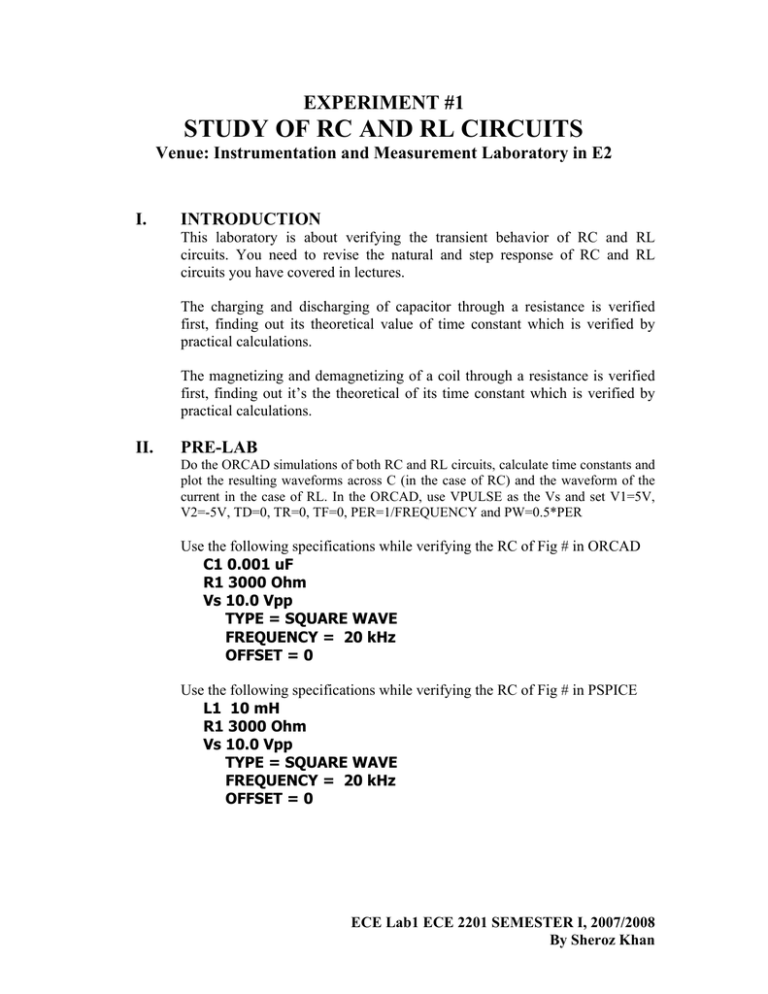
EXPERIMENT #1 STUDY OF RC AND RL CIRCUITS Venue: Instrumentation and Measurement Laboratory in E2 I. INTRODUCTION This laboratory is about verifying the transient behavior of RC and RL circuits. You need to revise the natural and step response of RC and RL circuits you have covered in lectures. The charging and discharging of capacitor through a resistance is verified first, finding out its theoretical value of time constant which is verified by practical calculations. The magnetizing and demagnetizing of a coil through a resistance is verified first, finding out it’s the theoretical of its time constant which is verified by practical calculations. II. PRE-LAB Do the ORCAD simulations of both RC and RL circuits, calculate time constants and plot the resulting waveforms across C (in the case of RC) and the waveform of the current in the case of RL. In the ORCAD, use VPULSE as the Vs and set V1=5V, V2=-5V, TD=0, TR=0, TF=0, PER=1/FREQUENCY and PW=0.5*PER Use the following specifications while verifying the RC of Fig # in ORCAD C1 0.001 uF R1 3000 Ohm Vs 10.0 Vpp TYPE = SQUARE WAVE FREQUENCY = 20 kHz OFFSET = 0 Use the following specifications while verifying the RC of Fig # in PSPICE L1 10 mH R1 3000 Ohm Vs 10.0 Vpp TYPE = SQUARE WAVE FREQUENCY = 20 kHz OFFSET = 0 ECE Lab1 ECE 2201 SEMESTER I, 2007/2008 By Sheroz Khan III. EXPERIMENTAL METHOD Equipment Required: Square-wave generator, discrete circuit components of R1=3000Ω, L1=470uH and C1=1000pF, oscilloscope and square-wave generator Fig #1 Fig #2 IV. MEASUREMENT AND READIGNS Here derive the equation for the above vC(t) and vR(t), and plot them using MATLAB to see if they are the same as the ones obtained PSPICE and the oscilloscope in II and III respectively. From the plots in II and III find out how long (in time constant, τ) does it take for the vC(t) and vR(t) to get to 95 % of their maximum (or come down to 5 % of minimum) of their minimum values. Show with changing values of R, the resultant waveforms and effect on them. V. CONSLUSIONS Varying R in RC circuit results in what? Varying R in RL circuit results in what? How much the voltage across a charged capacitor is reduced to after one time constant, RC? How much the voltage across a resistor in RL circuit is reduced to after one time constant, L/R? ECE Lab1 ECE 2201 SEMESTER I, 2007/2008 By Sheroz Khan
